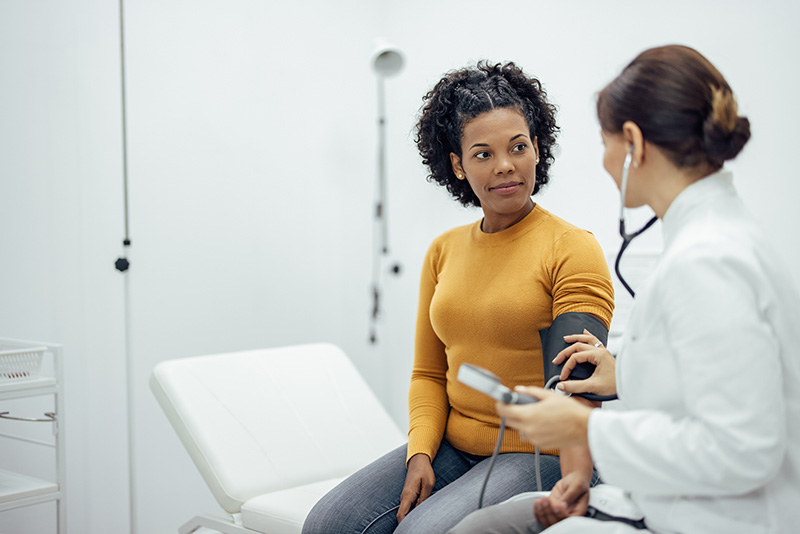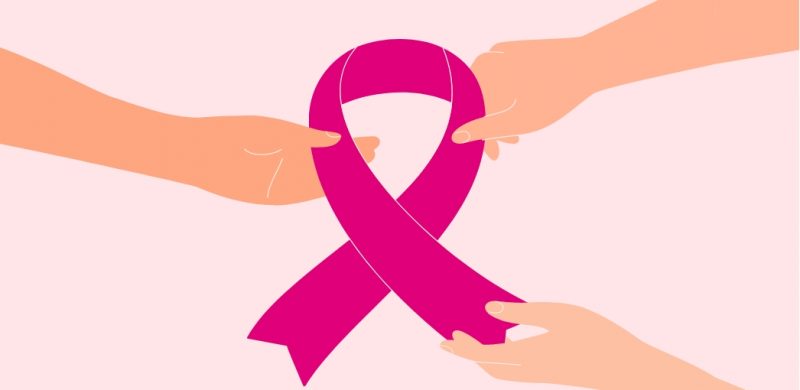
Published September 2022
Women are more often the primary caregivers and health care decision makers for their families compared to men. Both roles are not only time-consuming but can be emotionally draining. As a result of focusing on the needs of their families, it’s no surprise that women are more likely to disregard their own health needs.
But health and well-being shouldn’t be ignored, especially when different health concerns can be prevalent as you age. Here, we’ll cover which health and cancer screenings are important for women to prioritize, and when they should get them.
Learn More >> Find a Health Care Provider
 Women’s health screenings to prioritize
Women’s health screenings to prioritize
Health issues can vary depending on several factors including family history, lifestyle and age. While it’s always best to speak with your doctor about your own medical history to determine which health and cancer screenings you should prioritize, here are some women should consider:
- Blood pressure & cholesterol. Maintaining both a healthy blood pressure and cholesterol level can minimize the risk of heart disease, as can a well-balanced diet and regular physical activity. For blood pressure, it’s recommended that adults 18-39 get checked every 3-5 years and those 40 and older every year—though it’s generally a good idea to get blood pressure checked anytime you’re at the doctor’s office. For cholesterol screenings, risk factors can vary so talk to your health care provider about how often you should be screened.
- Cervical cancer. From ages 21-29, it is recommended that anyone with a cervix get screened with a Papanicolaou (Pap) test every three years. Those ages 30-65 can either continue to get a Pap test every three years or choose to screen every five years with either a human papillomavirus (HPV) test or both an HPV test and Pap test. Even if you’ve been vaccinated for HPV, you should still follow screening guidelines. It is typically not recommended to continue screening if you’ve had a total hysterectomy (not because of cancer) or are over 65 with adequate prior screenings and are not at high risk for cervical cancer.
- Skin cancer. While it’s suggested for adolescents and adults to be counseled on minimizing exposure to ultraviolet (UV) radiation, it’s particularly important to keep up with regular skin checks if you have a history of skin cancer, sunburns or have fair skin and light hair/eyes. Keep an eye out at home for any new marks or changes to the color, shape or size of existing moles or marks and talk to your doctor if any concerns arise. Lower your risk of skin cancer by wearing sunscreen daily when outside, staying out of the sun between peak hours of 10:00am and 2:00pm and avoiding exposure to UV light sources like tanning beds.
Learn More >> Log into the Member Portal for Resources and Support
- Breast cancer. About 1 in 8 U.S. women will develop invasive breast cancer, which is why keeping up with screenings is of the utmost importance. Women who are 40-49 years old should talk to their doctor about when to start getting mammograms and how often. Those ages 50-74 can usually have mammograms done every two years. And regardless of age, you should also do your own self-exams on a regular basis and keep your doctor apprised of any abnormalities you may come across.
- Diabetes. Maintaining a healthy lifestyle can help to decrease the risk of getting Type 2 diabetes, though testing should be done as you age. All adults starting at age 35 should be screened for prediabetes and Type 2 diabetes. Women who are planning to become pregnant should get a screening with a fasting glucose test, and those with unplanned pregnancies should be screened during their first prenatal visit. Gestational diabetes should be screened between weeks 24 and 28 of pregnancy.
Learn More >> Explore virtual fitness programs
- Colorectal (colon) cancer. From ages 45-75, all adults at average risk for colorectal cancer should be screened, though screening frequency will vary depending on the type of test done. Some stool tests can be done annually, while a flexible sigmoidoscopy is every five to ten years and a colonoscopy every ten. Speak to your doctor about which test is right for you.
- Bone density. Most common in older women, bone density loss can lead to osteoporosis. Bone density tests are recommended for women 65+ or younger women who may be more at risk for breaking a bone. You can take steps today to help prevent osteoporosis in the future with a calcium-rich diet that includes vitamin D, potassium and protein, as well as regular exercise like walking, aerobics or weight training.
 Keep up with preventive care
Keep up with preventive care
Take control of your health by keeping up with preventive care appointments like screenings, immunizations and regular check-ups, which are covered by most health plans. Your annual physical can be a good time to discuss any questions or concerns you may have about your health with your primary care physician (PCP). Outside of appointments, maintaining a well-balanced diet and regular physical activity can help you stay healthy for the long run.
To confirm eligibility for any programs or services mentioned in this article as it relates to your specific health plan, please reach out to your account executive or HR benefits team. You may also speak to our member services team at (888)-333-4742 or by sending a secure email. And for plan details and other member resources, log in to the member portal.


